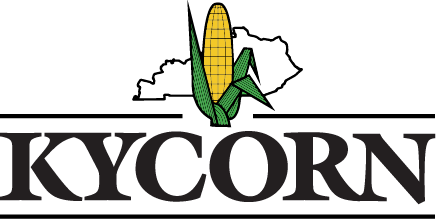SAN ANTONIO – With record production, blending and exports for the U.S. ethanol industry last year, the outlook for the domestic ethanol industry isn’t just strong—it’s Ethanol Strong, Renewable Fuels Association (RFA) President and CEO Bob Dinneen said today during his annual State of the Industry address at the 23rd Annual National Ethanol Conference. The theme of this year’s conference, Ethanol Strong, reflects the industry’s success over the past year, providing consumers with the cleanest, lowest cost and highest octane fuel in the world.
Dinneen outlined the ethanol industry’s highlights over the past year and how to overcome future challenges.
In 2017, the U.S. ethanol industry:
- produced a record 15.8 billion gallons from 211 ethanol biorefineries across 28 states;
- broke domestic ethanol blending records, with the national blend level exceeding 10% as E15 and E85 sales soared;
- saved consumers hard-earned money at the pump, giving most Americans a bigger tax break cut than Congress did last year;
- provided the single most-important value-added market to farmers, purchasing 5.5 billion bushels of corn for processing into fuel and feed; and
- exported a record 1.4 billion gallons of ethanol to more than 60 countries, among other accomplishments.
“All of that my friends, is the definition of Ethanol Strong. You’ve taken every challenge and every failure and turned it into success. You’ve strengthened the economy….You muscled your way into the motor fuel market here and abroad to give consumers both choice and savings at the pump. And you’ve steadfastly refused to wither in the face of unrelenting attacks from those who believe America’s future is beholden to the fossil fuels of the past,” Dinneen told attendees.
KY Kickoff
Commonwealth Agri-Energy General Manager Mick Henderson provided opening remarks as RFA Chairman.
However, efforts by “the foolish fossil fuel fanatics” to undercut the U.S. ethanol industry’s success are not relenting, Dinneen warned. “Buoyed by sympathizers in the administration and their champions on Capitol Hill, fueled by funding we can only imagine, and willing to distort reality to fit their agenda, efforts to undermine the growth in renewable fuels, repeal or render toothless the Renewable Fuel Standard, and deny consumers choice at the pump are gaining momentum,” he noted.
Proposals to reform or repeal the RFS hold no water, Dinneen declared. “[T]he conversation must be about the future, and must include opportunities to grow the renewable fuel market beyond the RFS, not how to limit the RFS. The RFS has been a tremendous success. It does not need to be reformed simply because some refiners don’t like the policy,” he said. “The bottom line is this: there is no reason for the ethanol industry or its champions in Washington to accept demand destruction as a necessary or legal path to the future to accommodate the failed business plans of a few independent refiners. The facts are on our side. The success of the RFS is on our side. And the President is on our side,” he added.
One of RFA’s top policy priorities is for RVP parity, providing consumers with the same year-round access to E15 and higher level ethanol blends, just as E10 currently receives. “This disparate treatment of E10 and E15 with regard to volatility regulations is the single most significant barrier to expanded ethanol use and it needs to end,” Dinneen said. At the conference, RFA provided postcards for attendees to send to President Trump, reminding him of his commitment to reduce the regulatory barriers to expanded ethanol use.
Dinneen also highlighted RFA’s work on the international stage, concerned with the “growing and troubling protectionist” tariffs that have been imposed by the European Union, China and Brazil. “We will never build a dynamic and competitive biofuels trade on the back of tariff and non-tariff barriers,” he said. Thanks to this administration’s America First trade policy, “[w]e are optimistic that the tide of protectionism will soon ebb, and a new period of fair and free biofuels trade will create increased demand here and relief at the pump for those consumers currently being denied access to the lowest cost ethanol in the world,” he said.
Dinneen’s message to attendees was “to ignore the nattering nabobs of negativity and stay focused on the need to build demand” to help grow the U.S. ethanol industry. “I am more confident that I have ever been that the U.S. ethanol industry, led by the visionaries in this room, is poised for continued growth and unprecedented success. That is not just because the industry is strong today and getting stronger. It is because this industry knows what it takes to succeed, and remains resolute in the face of setback, determined in the face of adversity, and committed to the farmers who grow our feedstock, consumers who use our fuel, and a nation that rewards innovation,” he concluded.
Dinneen’s full remarks, as prepared for delivery, can be found here.



